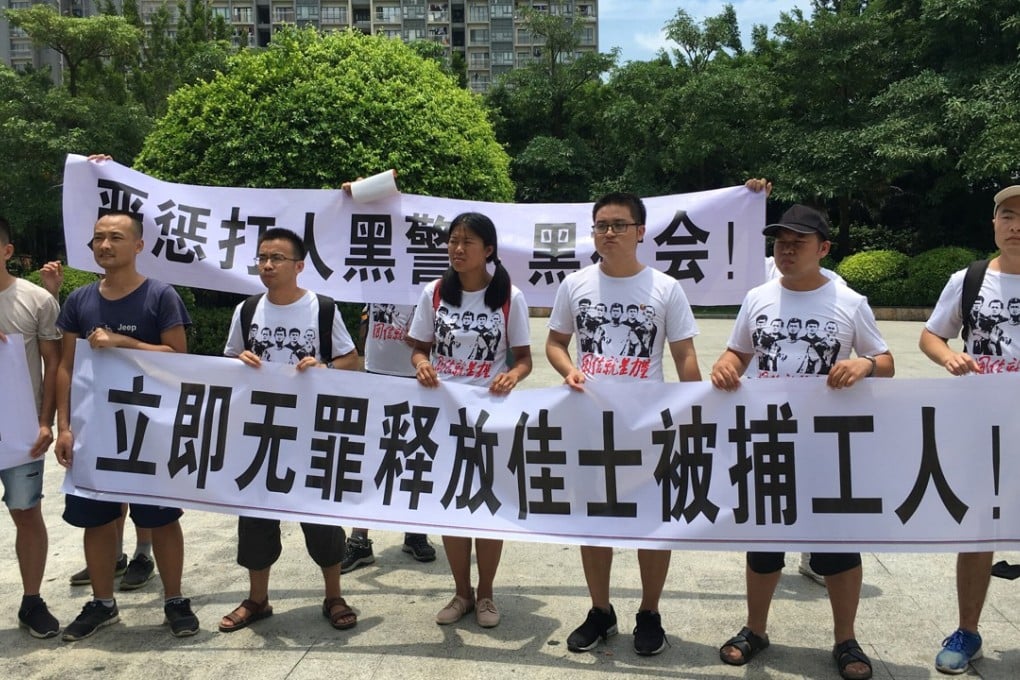Opinion | China’s labour relations have entered a dangerous new phase, as shown by attacks on Jasic workers and activists
Tim Pringle and Anita Chan say the detention of workers and labour activists, plus the state media’s efforts to discredit them, show what lengths Chinese authorities will go to, to crush worker disputes

They are facing severe repressive measures by the authorities, with over 60 workers and supporters detained. Four workers were formally arrested on September 3 and four supporters and an NGO worker are under criminal detention.
On August 27, Worker Empowerment released a statement clarifying that neither it nor DGZ organised or financially supported the workers. The statement also expressed hope that “the rights and safety of all participants [in the Jasic dispute] are legally and reasonably taken care of as soon as possible”.
This is not the first time authorities have pointed the finger at labour NGOs. In December 2015, following a coordinated round-up and temporary detention of labour activists and workers in Guangdong province, four staff from another labour NGO were formally charged. Three were given suspended prison sentences and the other was jailed for 21 months.
